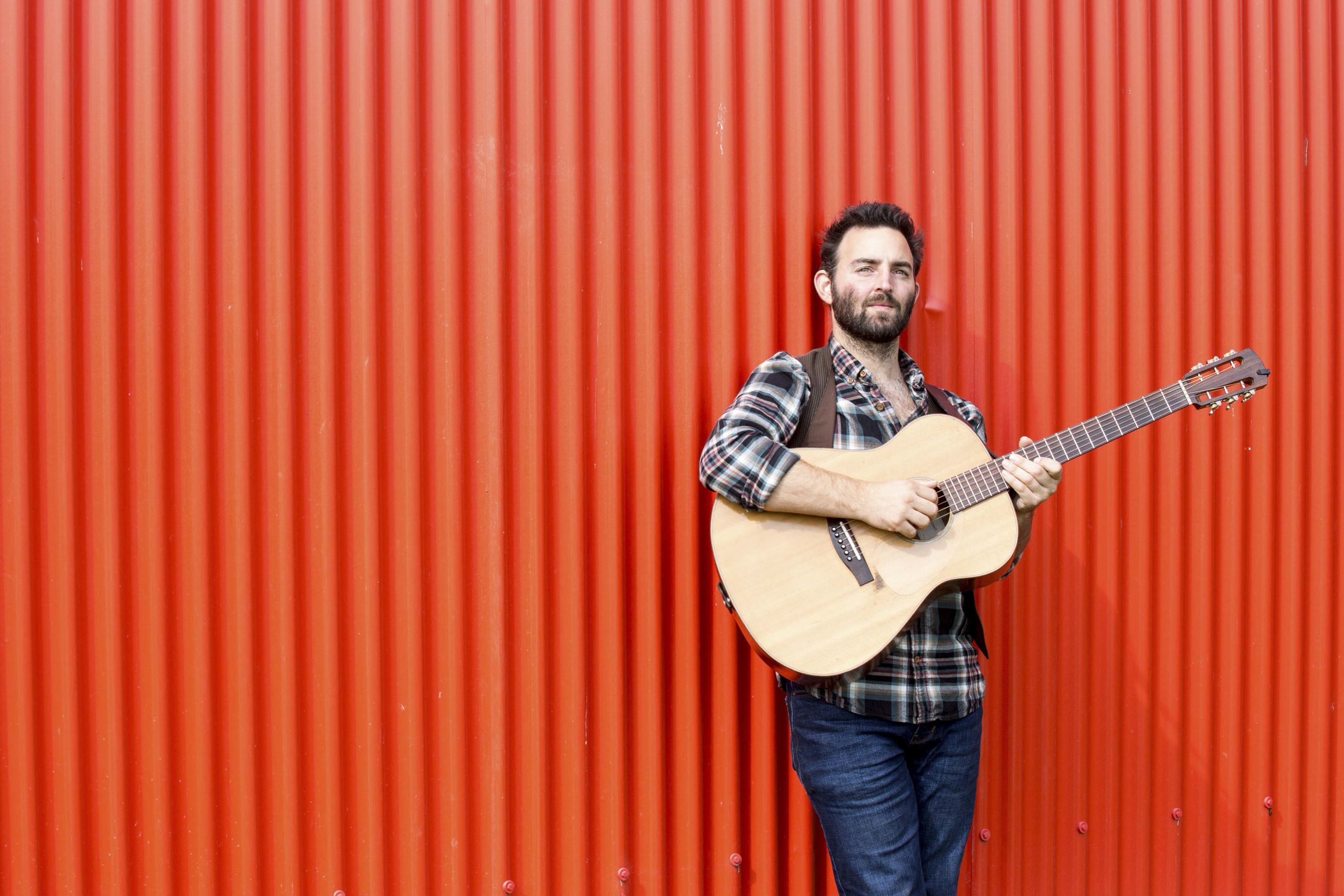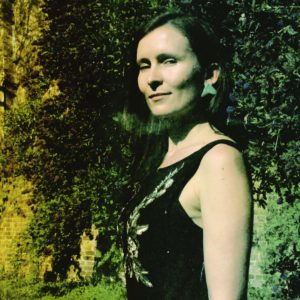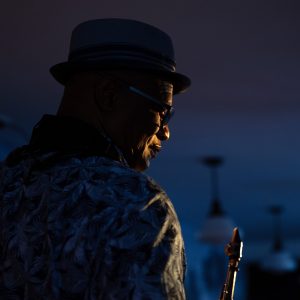English workers sing for the countryside
A new album of folk songs sung by people who work and walk the land across the United Kingdom has a powerful message about the politics of accessing our shared heritage.
Author:
24 November 2021

“It was a challenge sonically, I’m not going to lie,” says Sid Goldsmith. “We wanted to keep the recordings as raw and uncomplicated as possible to keep the intention of the story at the forefront, but never at the cost of audio quality or accessibility.”
Goldsmith, the UK folk musician who produced the new compilation Stand Up Now: Songs From the Landworkers’ Alliance is talking about his journey from barn to barn across the United Kingdom, recording land-based workers with a song to sing.
His first recording was with farmer Ed Hamer, who sang Generations of Change, about the changes in work patterns that occur over generations of families. “Ed stood by his polytunnel on Dartmoor in the South West, with microphones hidden in the bushes to capture the birds singing into the dusk,” says Goldsmith. “You can also hear his horse scratching and snorting over the fence somewhere in that recording and I did all I could to preserve that sense of place in the mix.”
Related article:
This sense of place also resonates in Rita Oldenbourg’s version of Quiet Joys of Brotherhood, a Richard Fariña poem with an environmental message that is set to the Irish air My Lagan Love.
“Rita Oldenbourg grows food at Pitney in Somerset and wanted to record in the local church, which has an incredible acoustic,” says Goldsmith. But the noise of a distant lawn mower made recording impossible. “We had to go and hunt [the lawnmower] down before we were able to record,” he says.
While Goldsmith clearly had to battle the odds to document the songs that make up Stand Up Now, his approach has rewarded the listener with a remarkably intimate listening experience that explores our relationship to the Earth and the politics of accessing land.
Market garden beginnings
It is apt the spark that resulted in Stand Up Now can be traced back to a market garden. As Goldsmith recalls, the project was the brainchild of Humphrey Lloyd from the Landworkers’ Alliance (LWA), a union of farmers, growers, foresters and land-based workers, which is a member of the international peasants’ movement La Via Campesina.
“I used to work with [Lloyd] on his market garden in Bristol supplying salad and veg to the local community and businesses,” says Goldsmith. “So we’d chatted about it a few times before deciding to go for it.” Goldsmith says he has been involved with the LWA in various forms, as a food grower, in woodland management and as a musician playing at several LWA events.
Related article:
“The organisation is very dear to me and many of these gatherings end with songs around the fire, where everyone seems to have a folk song in their back pocket that represents their life on the land in some way,” says Goldsmith.
Stand Up Now is a document of these back-pocket songs, not recorded around the campfire, but where the singers live and work.
Lloyd and Goldsmith already had a few ideas about songs and musicians they wanted to include on the album but then spread the net wider. “We put out a call to members of the Landworkers’ Alliance to submit simple phone recordings of tracks they’d like to perform for the album,” says Goldsmith. “We had such a beautiful response to choose from.”
Who owns the land?
In 2019, Guy Shrubsole’s book Who Owns England? shone a spotlight on the concentration of land ownership among the elite. His research, using data released through freedom of information applications and public maps, estimated that half of England was owned by 1% of the population, a mere 25 000 landowners.
“A few thousand dukes, baronettes and country squires own far more than all of middle England put together,” wrote Shrubsole. “Land ownership in England is astoundingly unequal and heavily concentrated in the hands of a tiny elite.”
Shrubsole’s book estimates that 30% of English land is owned by the aristocracy and gentry, 18% by corporations and 17% by oligarchs and city bankers. By comparison, only 5% of English land is owned by homeowners and 8.5% is held publicly.
Related article:
Nick Hayes is another writer who is focused on English land rights. In August 2020 he published The Book of Trespass: Crossing the Lines that Divide Us, which points out that the English public is currently excluded from 92% of the land and 97% of its waterways, “blocked by walls whose legitimacy is rarely questioned”.
Goldsmith, who recently played a gig where Shrubsole and Hayes were promoting the Right to Roam campaign, says, “It’s all really important stuff … What Guy did with his book has shone so much painful light on why we can’t go where we please.”
It is a sentiment that is at the heart of Stand Up Now, where old folk songs like The World Turned Upside Down, Rufford Park Poachers and The O’Halloran Sisters address the past politics of gaining access to land, reminding us how little has changed.
We want the land
On Stand Up Now, Goldsmith and his musical partner Jimmy Aldridge recorded Leon Rosselson’s 1975 song The World Turned Upside Down, which tells the story of the True Levellers, a 17th-century agrarian communist movement, more commonly known as the Diggers.
In the wake of the 1649 execution of King Charles I, a faction of the political movement known as the Levellers split to form the True Levellers. This group, led by Gerrard Winstanley, occupied formerly common land at St George’s Hill and Little Heath in Surrey, Wellingborough in Northamptonshire and Iver in Buckinghamshire that had been privatised by enclosure. Winstanley argued that “true freedom lies where a man receives his nourishment and preservation, and that is in the use of the Earth”.
Rosselson’s lyrics tell the story: They defied the landlords / They defied the laws / They were the dispossessed / Reclaiming what was theirs. The World Turned Upside Down is a protest song that has “the sin of property” set firmly as its target.

English landowners did not take kindly to the invasion of the land, and the Diggers were subjected to beatings, arson attacks and litigation. Goldsmith says the song, which was made famous by Billy Bragg on his 1984 album Brewing Up With Billy Bragg, has a rich history of interpretation. Rosselson’s lyrics even use some of Winstanley’s own words, such as describing the Earth as “a common treasury for all”.
The spirit of Rosselson’s song can be clearly heard in another of Stand Up Now’s highlights, We Want the Land by contemporary three-piece folk group King Driscolls, made up of Essex land workers.
We Want the Land is a shanty-styled folk song that dreams of an agrarian socialist future: When we can’t pay house prices / And we can’t pay the rent / We can tow an old trailer / We can pitch a tent / We can make the farmhouse / and fields our new homes, if we had the land.
Four centuries of song
The breadth of material Goldsmith has recorded for Stand Up Now is staggering, as songs from the past four centuries sit side by side, all somehow speaking to the present.
The stories in these folk songs still resonate today – such as the three O’Halloran sisters who resisted eviction in the rent boycotts that resulted from the Second Irish Land Act of 1881 or the trial of a group of Mansfield men transported to jail in Bermuda for poaching wild rabbits to feed their families when faced with a declining framework-knitting industry.
“It’s a passion of mine to hunt out songs in the traditional canon that remain relevant,” says Goldsmith. “I think the cream rises to the top in this way as songs that don’t remain relevant are either edited or forgotten.
Related article:
“The ones that we’re still singing will have been through so many hands that we can all feel a connection to them as our heritage. Occasionally someone will fully reimagine them and flip them on their head, as in The Lark in the Morning by Eggclab7.”
The Lark in the Morning is an 18th-century folk song from Devon about the life of a ploughboy. Some versions feature a sexual encounter between a ploughboy and a maiden.
As The New Penguin Book of English Folk Songs points out, the documenting of this song is incomplete because “early collectors were not keen on the sexual encounters and noted down, or published, only the safe pastoral verses”. The song, which has been previously recorded by folk artists such as Maddy Prior and Steeleye Span, has been rewritten by Eggclab7 as a protest against humankind’s destruction of the Earth.
Across 15 songs, Stand Up Now is a poignant reminder of the importance of the Earth to human survival and why it should be shared between all, not just hived off by an elite.




